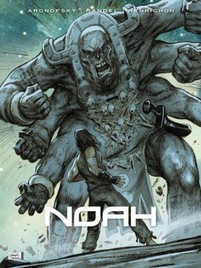Discussion Guide for Noah, the movie starring Russell Crowe
Love it or hate it, Darren Aronofsky's movie Noah will start people talking. If you are planning on seeing Noah, why not go with some friends and get together after to discuss it. Talking to others will enrich your experience.
To get some ideas, check out the . . .
Love it or hate it, Darren Aronofsky's movie Noah will start people talking. If you are planning on seeing Noah, why not go with some friends and get together after to discuss it. Talking to others will enrich your experience.
To get some ideas, check out the . . .
Noah Discussion Guide
[1] Noah’s Ark (1928) and its debt to DeMille, Peter T. Chattaway, June 11, 2007, http://www.patheos.com/blogs/filmchat/2007/06/noahs-ark-1928-and-its-debt-to-demille.html
[2] http://godawa.com/movieblog/darren-aronofskys-noah-environmentalist-wacko/
[2] http://godawa.com/movieblog/darren-aronofskys-noah-environmentalist-wacko/
